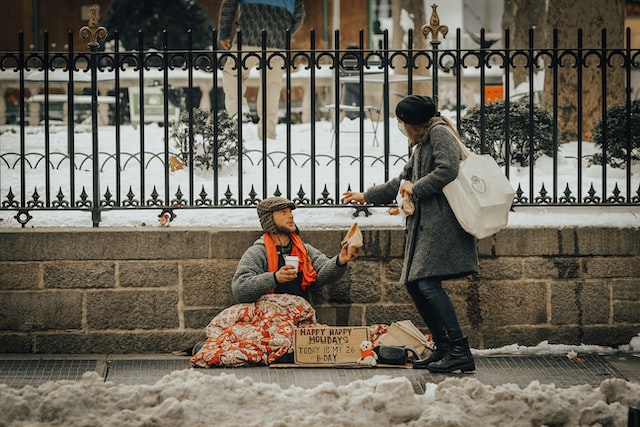The wealth of billionaires Canadians increased by 51%. And the others…

TORONTO – The majority of the world’s wealth is in the hands of 1% of the population. A disconcerting figure, what emerges from the latest report by Oxfam, published in conjunction with the start of the World Economic Forum in Davos in Switzerland, according to which in the last two years the 1% of the richest people have accumulated almost two thirds of all the new wealth created in the world.
According to the Oxfam report, a total of 42 trillion dollars of new wealth have been created since 2020, of which 26 trillion, equal to 63%, have been accumulated by the 1% of the ultra-rich. The remaining 99% of the global population has amassed just $16 trillion in new wealth.
With reference to the positions at the top of the distribution pyramid, from 2020 to today a billionaire has increased, on average, his wealth by about 1.7 million dollars for each dollar of wealth increase of a person located in the bottom 90%. Despite the stock markets crashing in 2022, the fortunes of billionaires have still risen at a rate of $2.7 billion a day over the past three years, after a decade that saw the number of billioners and their net worths double.
The research contrasts this wealth creation with reports from the World Bank, which said in October 2022 that it will likely fall short of its goal of ending extreme poverty by 2030, as the Covid-19 pandemic has slowed efforts to fight poverty.
Gabriela Bucher, executive director of Oxfam International, calls for a tax increase for the ultra-rich, saying it is a “strategic precondition for reducing inequality and reviving democracy. Taxing the super-rich and big corporations is the exit door from today’s overlapping crises. It’s time to bust the convenient myth that tax cuts for the very rich cause their wealth to somehow spill over to everyone else”.
“While ordinary people are making daily sacrifices on essentials like food, the super-rich have outdone even their wildest dreams. Just two years in, this decade is shaping up to be the best yet for billionaires —a roaring ‘20s boom for the world’s richest. Crisis after crisis, the multiple gaps have widened, reinforcing generational inequities, widening gender inequalities and territorial imbalances. Even in the face of a black 2022 on the markets, what will not be affected is the fate of those who occupy top social positions, also favored by decades of tax cuts on the richest, which have consolidated their privileged positions. A fairer tax system, starting with a higher levy on the wealthiest individuals, is one of the tools to combat inequality. A 5% tax on large estates could generate resources for the collecting countries to be reallocated for goals of fighting poverty at a global level, freeing up to 2 billion people from poverty”.
But what is the situation in Canada? The billionaires here have seen their wealth grow by a staggering 51% since the start of the pandemic. In particular, food and energy companies made the most money, which “more than doubled their profits” last year alone, collecting – globally – $305 billion in profits and paying 84% of it to their wealthy shareholders. And this while most “normal” Canadians are currently grappling with their finances, in many cases finding themselves having to choose between paying the bills and putting food on the table. This year, Canadians should expect to spend an extra $1,065 on groceries alone. Not to mention the cost of rents and mortgages and loans whose installments, with the increase in interest rates, have increased.
“This decade is shaping up to be the best for billionaires,” said Lauren Ravon, executive director of Oxfam Canada, noting that taxing the super-rich and big corporations is the gateway out of today’s overlapping crises. “It’s time to bust the convenient myth that tax cuts for the very wealthy cause their wealth to somehow ‘drip’ onto everyone else. Forty years of tax breaks for the super-rich have shown that a rising tide does not lift all ships, only super yachts,” she added, echoing his colleague Gabriela Bucher. What answers will the government give?



